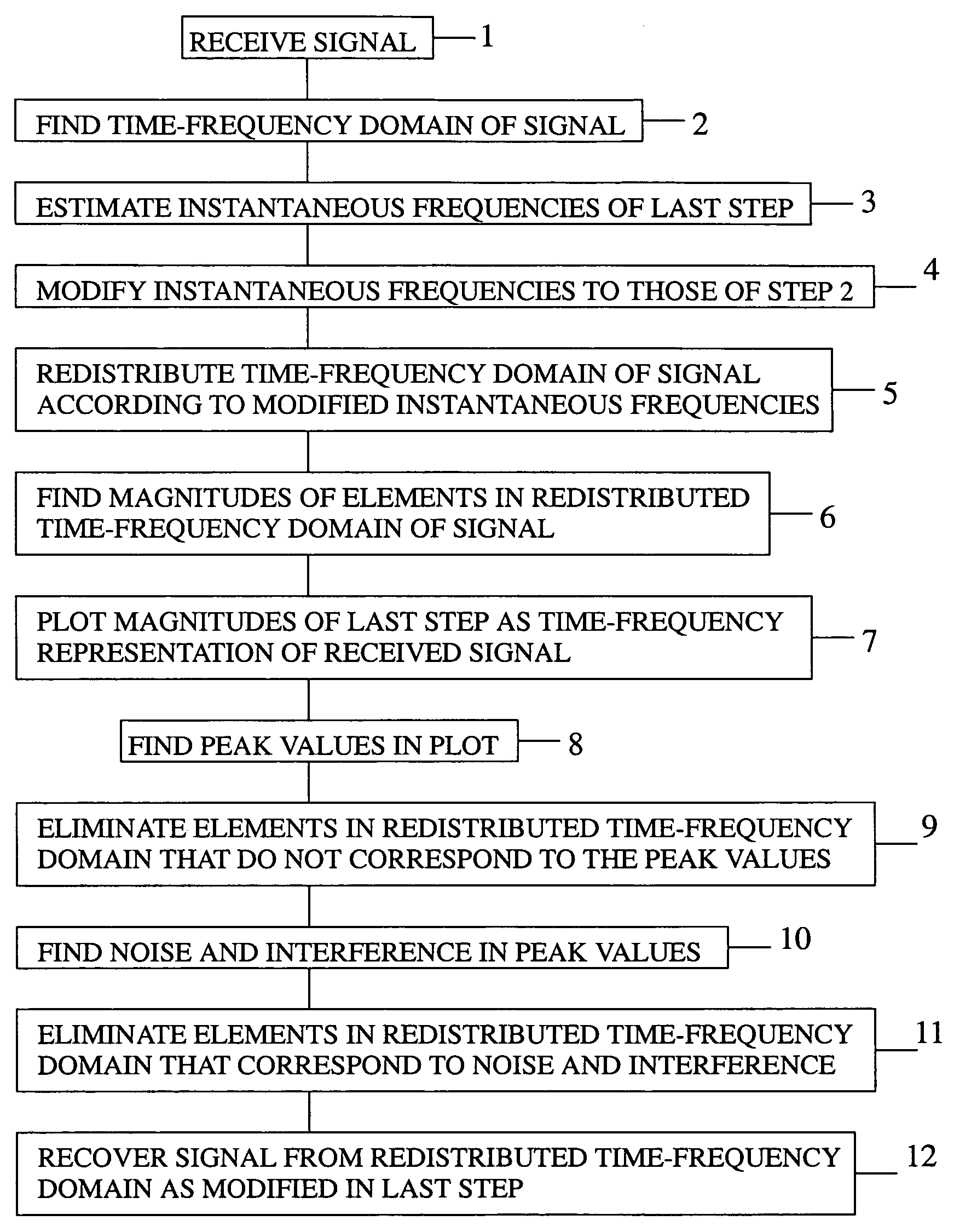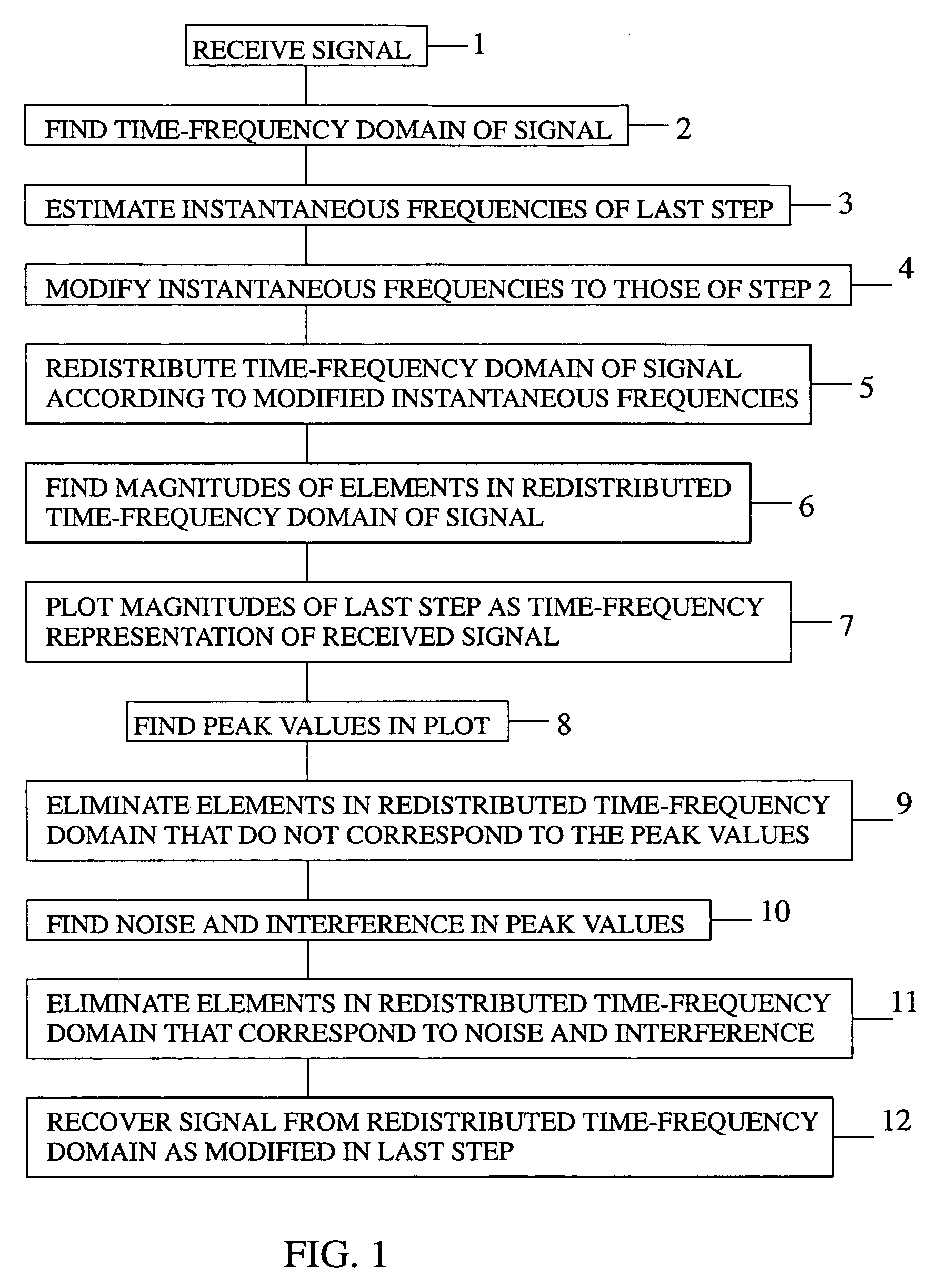Method of removing noise and interference from signal using peak picking
a peak picking and signal technology, applied in the field of speech signal processing, can solve the problems of difficult estimation, noise and interference removal, and the need to remove noise and interference, and achieve the effect of removing noise and interferen
- Summary
- Abstract
- Description
- Claims
- Application Information
AI Technical Summary
Benefits of technology
Problems solved by technology
Method used
Image
Examples
Embodiment Construction
[0030]The present invention is a method of removing noise and interference from a signal. The present method is useful in signal coding application, but may be used for any other suitable signal processing application.
[0031]FIG. 1 is a flowchart of the method of the present invention.
[0032]The first step 1 of the method is receiving the signal. The signal may be in the time or frequency domain. In the preferred embodiment, the received signal is in the time domain.
[0033]The second step 2 of the method is converting the received signal to the joint time-frequency domain. In the preferred embodiment, the second step 2 is accomplished by calculating a short-time Fourier transform (STFT) on the received speech signal. An STFT is a known method of forming a matrix of complex values that represent the signal, where the columns (or rows) of the matrix are discrete time and the rows (or columns) of the matrix are discrete frequency. The elements of the matrix may be thought of as representi...
PUM
 Login to View More
Login to View More Abstract
Description
Claims
Application Information
 Login to View More
Login to View More - R&D
- Intellectual Property
- Life Sciences
- Materials
- Tech Scout
- Unparalleled Data Quality
- Higher Quality Content
- 60% Fewer Hallucinations
Browse by: Latest US Patents, China's latest patents, Technical Efficacy Thesaurus, Application Domain, Technology Topic, Popular Technical Reports.
© 2025 PatSnap. All rights reserved.Legal|Privacy policy|Modern Slavery Act Transparency Statement|Sitemap|About US| Contact US: help@patsnap.com



